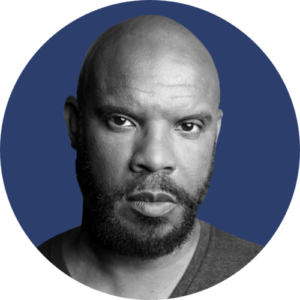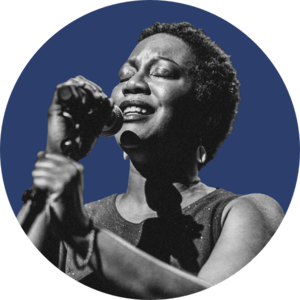African Americans knew that, even with the abolition of slavery through the passage of the Thirteenth Amendment, they would still need to pursue additional rights and protections under the law if they were to enjoy the full benefits of freedom.
Following emancipation, Black soldiers and citizens alike rallied for their civil rights by forming community councils and convening assemblies to petition local, state and federal governments to expanded their access to justice and liberty in an official capacity.
View Transcript
Kidada Williams: Previously, on Seizing Freedom:
M Howard: I thought when a man was once free, he was free indeed and was entitled to all the laws and rights of a free people.
Mary Armstrong: Come ‘63, Mr. Will set us all free. I said “Away I goin’ to find my Mamma.”
Thomas Walker: And what if we suffer hardships, so we gain freedom in the end? Will that not make rewards for all?
Jacob Christy: But by God’s will and power they will have their rights, us that are living now may not live to see it. I shall die a trying for our rights so that others that are born hereafter may live and enjoy a happy life. If we can’t get our rights, we will die trying for them.
William Watkins: I live to see another anniversary of American Independence, a day peculiarly dear to the white inhabitant of the United States—and one by no means uninteresting to your colored and neglected countrymen.
KW: On July 4th, 1831, William Watkins refused to participate in any Independence Day festivities.
WW: While ten millions of freemen are proclaiming in tones of thunder, from centre to circumference of this widespread Union, the “self-evident truths,” that all men are created equal, and endowed by their Creator with certain inalienable rights…
KW: Instead, the free teacher and abolitionist sat down to write—putting ink to his feelings about the hypocrisy of celebrating liberty in a country that held millions of people, like him, in bondage.
WW: …I, feeling the injustice done to me by the laws of my country, retired from the exulting multitude to contemplate the past and the present as connected with our history in the land of our nativity.
KW: Watkins contemplated this in the midst of a colonization movement, promoted in part by enslavers, who targeted free Black people with surgical precision—to “encourage” them to “voluntarily” just leave the country altogether, for colonies in Liberia or the Caribbean.
WW: There is nothing either in the past or present corroborative of the anti-Christian and anti-Republican colonization doctrine—that we can never enjoy in this country the rights of freedom. This abominable doctrine emanuated from the malevolent—it has been cherished and propagated by the vulgar and the prejudiced.
KW: Though Watkins didn’t initially like the idea of leaving, free men like him faced a complicated choice. On one hand, emigration came with a promise of distancing oneself, one’s family and potential futures from racist oppression and restrictions on their freedom.
On the other, both free and enslaved Black people built the United States. They were born here, did the work here, and were entitled to stay. And yet, they weren’t receiving the benefits of the “inalienable rights” and “self-evident truths” promised by the Declaration of Independence.
WW: I conclude by expressing the hope that an unalterable attachment to our only true home, an admiration of the republican principles of our government and the irresistible influence of free institutions will yet obtain for us, in the United States of America, our indefeasible inheritance.
KW: But Watkins eventually became so frustrated with abolition’s slow progress, and the nation’s failure to honor its principles for all citizens, that he moved to Canada and died before the Civil War and emancipation. His niece, Francis Ellen Watkins Harper, took up his mantle as a teacher, poet, and orator. In 1862, she wrote an editorial in response to the country’s latest emigration scheme:
Francis Ellen Watkins Harper: We neither see the wisdom nor expediency of our self-exportation from a land which has been in large measure enriched by our toil for generations, till we have a birth-right on the soil, and the strongest claims on the nation for that justice and equity which has been withheld from us for ages.
KW: By this time, President Lincoln was ready to strike at slavery to win the war. But he was well aware of white animus toward the idea of “sharing” American freedom with Black people. He thought he might soften the fallout of abolition, if he could promise that all the free Black people would just leave. He even secured $600,000 from Congress to pay for it.
Black elites in Washington, D.C., were divided on the issue. As minister Henry McNeal Turner wrote, the prospect of having an audience with Lincoln was exhilarating. And…
Henry McNeal Turner: I suppose no colored man in the nation would have any objection to going anywhere, if this government pay them for their two hundred and forty years’ work…
KW: But the President’s designs for colonization weren’t entirely clear. Did he plan to just kick African Americans out of the country, whether they wanted to go or not? If so…could he?
Lincoln called on a small delegation of Black, D.C. ministers to hear him out. He proposed a colony in Panama. There was opportunity there, he said—Panamanian coal mines that were ripe for the digging. Fortunes could be made and new nations with flourishing economies established—they could take the model of American capitalism and recreate it in their “own” space.
HMT: Now I am not so tight-brained, as not to want anything said about emigration. My sentiments are, let it be discussed, and let those go who wish, and those stay who desire; let us have a free expression about it, for all this helps to develop intellect; it sets men to studying the physical and geographical condition of the globe. But to talk about moving the colored people from this country is foolishness.
KW: As an army chaplain, Turner had watched Black men and women die fighting in the Union Army for their liberation. Instead of founding a new colony, he was one of many who insisted that free Black people stay and persist in their fight for opportunities, fortunes, and citizenship here.
HMT: I think there never was a time when a better opportunity offered itself to our people to speak to the civilized world than the present. And I believe that the nation will have a chance to hear from the black man in every direction.
KW: Ultimately, Lincoln’s project failed. Panama’s government rejected the proposal—clocking it as American settler colonialism. While thousands of Black Washingtonians had signed up to leave, most free African Americans across the country were aligned with Frederick Douglass—and had no intention of going.
Frederick Douglass: For better or for worse (as in some of the old marriage ceremonies), the negroes are evidently a permanent part of the American population. Here they are, four millions of them, and for weal or for woe, here they must remain. Their history is parallel to that of the country.
They have emerged at the end of two hundred and fifty years of bondage, not morose, misanthropic and revengeful, but cheerful, hopeful…They now stand before Congress and the country, not complaining of the past, but simply asking for a better future.
KW: Douglass was continuing the line of thought that made William Watkins consider his relationship to the nation three decades earlier:
WW: Why, I emphatically ask, should we not enjoy those rights which all must confess have been wrested from us without the shadow of a crime? What evil could possibly accrue from the adoption, by the white people of this nation, of a liberal, just, and humane policy towards three hundred thousand of the home-born citizens of the United States?
KW: Watkins’ questions would remain rhetorical—until the rights revolution of the Reconstruction era—when the U.S. refashioned the Constitution, extending more rights and citizenship protections to more Americans. African Americans included.
I’m Dr. Kidada Williams. This is Seizing Freedom.
On today’s show: Rights. Throughout the series, we’ve seen how African Americans turned the tide of the Civil War, to secure Union victory and emancipation, how they fought to reconstruct their families, build communities, and secure educational and religious liberties.
Today, we’ll see how their insistence on having a full stake in American freedom helped transform federal policy and codify the rhetoric of “liberty” into law…
The Thirteenth Amendment abolished slavery in 1865. But the “freedom” of emancipation was incomplete. Even as African Americans made their freedom real, they knew that without universal citizenship and rights protected by law, they remained exposed to the whims of white people’s self-interest.
Hannah Johnson—the mother of a black soldier who survived the massacre at Fort Pillow—wrote to Lincoln, and told him as much:
Hannah Johnson: Southern whites have lived in idleness all their lives on stolen labor and made savages of the colored people, but they now are so furious because they are proving themselves to be men…Slavery was wicked, and a horrible outrage… Robbing the colored people of their labor is but a small part of the robbery…
KW: In order to access real justice and fully claim their liberation, Hannah knew that African Americans needed to secure their rights—to marry, parent, make contracts, buy land, sue in court, move freely, attend school, practice their religion, and vote and serve in elected office. And they needed those rights to be recognized by the federal government.
They intended not only to be paid for their labor, but to be equal participants in American democracy. As Susie King Taylor put it:
Susie King Taylor: All we ask for is “equal justice” – the same that is accorded to all other races who come to this country of their free will (not forced to, as we were) and are allowed to enjoy every privilege, unrestricted, while we are denied what is rightfully our own in a country which the labor of our forefathers helped to make what it is.
KW: Nowhere was the ferment of a “rights revolution” more clear, than in Black people’s striving during—and directly following— the Civil War. Both in civilian life, and as enlisted men and women, Black Americans outlined the limits of emancipation as the final word on liberty.
SKT: For two hundred years we had toiled; the war of 1861 came and was ended, and we thought our race was forever freed from bondage, and that the two races could live in unity with each other. But when we read almost every day of what is being done to my race by some whites in the South, I sometimes ask, ‘Was the war in vain?’ Has it brought freedom—in the full sense of the word?
KW: African American sailors and soldiers seized new legal opportunities open to them by military and Freedmen’s Bureau courts. Soldiers and citizens alike formed community councils, and convened assemblies, building on the organizing campaigns of the Colored Conventions movement. In 1865, 52 Black delegates met at the local Zion Church in Charleston, South Carolina, to discuss their positions on voting, citizenship, and the security of their social and political rights.
Black Charlestonian: We ask for no special privileges or peculiar favors. We ask only for even-handed Justice, or for the removal of such positive obstructions and disabilities as the recent Legislators have seen fit to throw in our way and heap upon us.
KW: Their goal was to reach a formal consensus, then present their views to the state legislature. The convention was made more democratic and permeable by its broad and opinionated audience. As with most Black conventions, the proceedings of the day and the parties at night were attended by women and children alike.
Report: After the regular battle of the day, the evening skirmish by the sharp-shooters is looked forward to with peculiar interest. This pyrotechnical display of the torpedoes of poetry and sky-rockets of oratory sped along their fiery track…The hall and galleries which will seat fully two thousand persons, were crowded to suffocation.
KW: Black Charlestonians came to assert their opinions, offer feedback, and exert their influence over the 52 “delegates.” These informal dialogues would ultimately translate into the resolutions passed at the convention. One of the first orders of business was to get rid of the Black Codes that governed the state.
Black Charlestonian: …by the so-called Black Code we are deprived the rights of citizenship, which you deny to us who have been born and reared in your midst, who were faithful while your greatest trials were upon you.
We simply desire that we shall by recognized as men…that the same laws which govern white men shall direct colored men; that we have the right of trial by a jury of our peers; that schools be opened or established for our children; that we be permitted to acquire homesteads; that we be dealt with as others, in equity and justice.
KW: State petitions worked out—in some places better than others—as long as the military and the Freedmen’s Bureau were around to enforce them. Just over the state line in Fayetteville, North Carolina—Henry Buie watched his enslaver abandon his plantation and his wife, and flee the advancing Union Army.
Henry (Buie) Parker: John Buie was allied to the Confederates. When he fled the plantation for safety he told us we could go to “the Yankees,” or stay at home, as we pleased. I chose to stay.
KW: Union soldiers blew up Fayetteville’s arsenal, set fire to cotton factories and newspaper offices—then advanced on. In the aftermath, Henry found a brown mule, standing amidst the rubble, unclaimed.
He named her “Fau” and took her back to live in the plantation’s horse lot. Henry would keep Fau at the plantation while he built up a farm—or lease her out at a day rate for extra income. Meanwhile, John Buie, Henry’s former enslaver, eventually crawled out of hiding and took up residence in his old house. Henry went to work for him again—but this time for pay.
HBP: I worked Fau in Mr Buie’s wagon, part of the time, and fed and kept her with Mr Buie’s stock. But, both of us claimed her. Mr. John offered to pay me for taking her up, but I declined. Fau is my mule, and I insisted on my right to her.
KW: In an attempt to settle the dispute, Henry offered to house Fau elsewhere—but John refused to allow it. He tried going to the Freedmen’s Bureau for help to get her back.
HBP: When Mr. Buie said we could “go to the Yankees” he good as set me free. And I’m no less free for choosing to stay and work. So, when I found Fau, as a freeman I had full right to claim and keep her.
KW: The Bureau sent Union soldiers from the local garrison to get Fau back. Incensed, John filed a civil suit. Unsurprisingly, southern courts were more likely than the Freedmen’s Bureau to rule in favor of the old, white, former slavocracy. After only a month of having her, the local court forced Henry to turn Fau over to John.
In 1865, Henry’s citizenship wasn’t formally recognized, and he had no clearly defined rights. That would eventually change, but it was going to take some dramatic shifts at the federal level. For the time being, as far as the courts were concerned, the only Buie who could claim a right to property, was John…
Southern whites had a record of making the law fit their whims and desires, with or without government approval. “There’s something down in South Carolina higher than Constitutional provisions,” as Frederick Douglass put it. In addition to property loss and barely legal contracts for work, former Union Army officers occupying the late rebel states, reported:
Brigadier General Fessenden: A spirit of bitterness and persecution manifests itself towards the negroes. They are shot and abused outside the immediate protection of our forces by men who announce their determination to take the law into their own hands, in defiance of our authority.
Carl Schurz: Several negroes came into town with bullet and buckshot wounds in their bodies. Bands of guerillas were prowling about within a few miles of the city, making it dangerous for soldiers and freedmen to show themselves outside of the immediate reach of the garrison.
Brigadier General Fessenden: To protect the negro and punish these still rebellious individuals it will be necessary to have this country pretty thickly settled with soldiers.
KW: In light of these horrors, progressive U.S. congressman and abolitionist, Thaddeus Stevens, spoke to his fellow Representatives—declaring that Black people would need their rights, property, and livelihoods federally protected not just by soldiers, but by the law.
Thaddeus Stevens: We have turned loose four million slaves without a hut to shelter them or a cent in their pockets. These infernal laws of slavery have prevented them from acquiring an education, understanding the common laws of contract, or of managing the ordinary business of life.
KW: Stevens knew that Southern states—governed at the time by Confederates—and Northern or Midwestern states—still controlled largely by Black Codes—weren’t likely to stand up for newly freed people.
TS: This Congress is bound to provide for them until they can take care of themselves. If we do not furnish them with homesteads, and hedge them around with protective laws; if we leave them to the legislation of their late masters, we had better have left them in bondage.
KW: As a conservative, President Andrew Johnson wanted to keep power within the states so that his fellow conservatives in the Democratic party, and whatever moderate Republicans he could swing, might re-elect him. When he laid down the rules for seceded states re-entering the Union, Johnson didn’t require them to abolish Black Codes. Instead, he opened the door for some ex-Confederates to start flooding back into seats in government.
On the other side of the political and ideological aisle, Radical Congressional Republicans saw Reconstruction as an opening in the American system for major equal rights reform.
TS: Every man, no matter what his race or color; every earthly being who has an immortal soul, has an equal right to justice, honesty, and fair play with every other man; and the law should secure him these rights.
KW: But in order to guarantee those rights, liberal Republicans needed to restrain the powers of the states to violate citizens’ protected rights. While the Civil War wasn’t just about states’ rights, the battle for equal rights during Reconstruction often was.
And in the November elections of 1865, white Southern conservatives—bolstered by Johnson’s clemencies—saw it as their right to re-elect secessionists back to the federal legislature. But when those former Confederate law-makers arrived in Washington to be seated in the 39th Congress, Congressional Republicans—refused to recognize them.
TS: Nobody, I believe, pretends that with their old constitutions and frames of government the former Confederate states can be permitted to claim their old rights under the Constitution. They have torn their constitutional States into atoms. Dead men cannot raise themselves. Dead States cannot restore their existence….”
KW: Liberal Republicans seized the opportunity to introduce their own more revolutionary Reconstruction plan. They came up with two measures that would extend the rights of freedom and democracy to all Americans: the Civil Rights Act and the Fourteenth Amendment. Senator Lyman Trumbull, of Illinois, introduced the former:
Lyman Trumbull: The Civil Rights bill is intended to give effect to that declaration that all men are created equal, and secure to all persons within the United States practical freedom.
KW: The purpose of the Bill was to give everyone born in the US the same “full and equal benefit of all laws…as is enjoyed by white citizens.”
LT: There is very little importance in the general declaration of abstract truths and principles unless they can be carried into effect…Of what avail will the 13th Amendment now be, if in the late slaveholding States laws are to be enacted and enforced depriving persons of African descent privileges which are essential to freemen?
KW: These waves of new legislation from liberal Republicans, their ouster of the former Confederates, and their supplanting of Johnson’s Reconstruction policies were revolutionary. Congress had never tried to exercise power like this before, especially advancing the rights of non-white people.
White, Southern conservatives cried, “coup.” And, at least initially, some Moderate Republicans were hesitant to overuse their authority, in case the Supreme Court decided their bills were unconstitutional. Progressives and their constituents tried to secure President Johnson’s support, and made multiple attempts to convince him.
State conventions of Black delegates sent lobbyists to DC. Thirteen men met with Johnson in February of 1866. The group, led by George T. Downing, pushed the president to support the Civil Rights Bill.
George T. Downing: We are in a passage to equality before the law. God hath made it by opening a Red Sea. We would have your assistance through the same. We are delegated to come by some who have unjustly worn iron manacles on their bodies—by some whose minds have been manacled by class legislation in States called free.
Our coming is a marked circumstance, noting determined hope that we are not satisfied with an amendment prohibiting slavery, but that we wish it enforced with appropriate legislation. This is our desire. We ask for it intelligently, with the knowledge and conviction that the fathers of the Revolution intended freedom for every American; that they should be protected in their rights as citizens,and be equal before the law. We are Americans, native born Americans. We are citizens; we are glad to have it known to the world that you bear no doubtful record on this point.
KW: But Johnson was offended that these men would presume to tell him what the founders believed, or how citizenship should be applied.
Andrew Johnson: There is a great deal of talk about the sword in one hand accomplishing an end, and the ballot accomplishing another at the ballot-box.
While I say that I am a friend of the colored man, I do not want to adopt a policy that I believe will end in a contest between the races, which if persisted in will result in the extermination of one or the other. It is the people of the States that must for themselves determine this thing.
KW: Frederick Douglass pushed to be allowed to speak—and tried to convince Johnson of the dangers of letting former secessionists set their own laws. But Johnson remained unmoved. He said that he had faith in white southerners to do what was right and if that proved incorrect, he wondered whether any of the Black delegates had considered…leaving the country?
Less than two weeks after meeting with Black lobbyists, Johnson vetoed a bill to renew the Freedmen’s Bureau, solidifying the rift between himself and the progressives in Congress.
In response, a Republican majority in the House passed the Civil Rights Bill of 1866. The measure was adopted by the Senate shortly after. It then landed on Johnson’s desk—and he promptly vetoed the Bill.
The House and Senate used their power to override Johnson’s veto, and the first Civil Rights Act in the history of the United States, and quite possibly the world, was written into law. It declared:
(Overlapping voices): All persons born in the United States…of every race and color, without any regard to previous condition of slavery or involuntary servitude, except as punishment for a crime…shall have the same right, in every State and Territory in the United States, to:
Make and enforce contracts, to sue, be parties and give evidence, to inherit, purchase, lease, sell, hold, and convey real and personal property and to full and equal benefit of all laws and proceedings for the security of person and property as is enjoyed by white citizens, and shall be subject to like punishment, pains, and penalties, and to none other, any law, statute, ordinance, regulation, or custom, to the contrary notwithstanding.
KW: With those last lines, the Black Codes specific to individual states were overturned.
Milwaukee Daily Sentinel: Guns were fired at Lawrence, Kansas in honor of the passage of the Civil Rights Bill over the President’s veto…
Lowell Daily Citizen News: JUBILANT. The colored people of Hampton, Virginia and the surrounding country had a great rejoicing last Wednesday night…Illuminations and torch-lights were in full blast, and every possible expression given to exuberant feeling.
Milwaukee Daily Sentinel: A salute of 500 guns was fired in New York yesterday morning…
New York Times: …on account of the passage of the bill which entitles them to all the immunities of the Republic.
Milwaukee Daily Sentinel: Three hundred guns were fired at Quincy, Illinois…
Chicago Tribune: …expressive of the grateful and patriotic feelings toward the Senate and House…for their noble devotion to the cause of country, liberty, justice, and humanity.
Milwaukee Daily Sentinel: Thirty-five very beautiful bouquets of flowers were distributed among the Senators who voted for that bill. To each bouquet was attached a card with the words, “We exercise the civil right to express our gratitude…” signed ‘colored citizens.’
KW: The Act gave African Americans new powers under the law—including the power to sue in court, which freed people did with a passion. During Reconstruction, Black men and women brought hundreds of civil cases against white enslavers, employers, and neighbors who previously held all legal power over them. By the time the Civil Rights Act passed, Henry Buie was no longer working for John Buie, his former enslaver in Fayetteville, North Carolina. To recap: Henry found a mule and named it Fau. John stole the mule. Henry used the Freedmen’s Bureau to get her back.
HBP (repeated): Both of us claimed her. Fau is my mule, and I insisted on my right to her.
KW: But after a legal tug-of-war, the local courts sided with John. Fau stayed in his possession for the next two years. By 1868, it might have made sense for Henry to give up on Fau. On the one hand, she was only a mule. But she was also likely the first piece of property Henry could legally claim as his own. And the money he earned from renting Fau was definitely a steady source of income.
HBP: She valued at $150.00, and I would hire her out for 50 cents per day.
KW: With the passage of the Civil Rights Act, Henry gained “equal benefit of all laws and proceedings for the security of person and property as was enjoyed by white citizens.” And so, Henry hired a lawyer. They put together a case for recovering Fau and demanded $100 in damages.
Henry also changed his last name to Parker. He was going to fight this battle using his own name, not the name of his former enslaver.
N.C. Supreme Court Justice: On the 15th of March, the defendant, Parker, “picks up” the mule, and puts it in the stable-yard of Buie, the plaintiff. The lower court judge expressed the opinion that “the defendant was then a free man.”
KW: When Henry won an appeal in the county court, Buie took the case to the North Carolina Supreme Court. There, the justices tried to parse out the moment that Henry became free, entitled to property and spoils of war.
N.C. Supreme Court Justice: We prefer to adjudge that his status as slave or freeman was conditional, and dependent upon the result of the war…that is, if the Confederate States were successful, both the defendant and the mule would be the property of the plaintiff — if the United States prevailed, the defendant was a freeman, and the mule was his property. Therefore there is no error. By the court: Judgment affirmed.
KW: In 1869—four years after he found Fau—the highest court in North Carolina fully recognized and affirmed Henry Parker’s legal rights as a citizen of the state, and he finally took permanent possession of his mule.
The Civil Rights Act was only the first step in the march toward full Black liberation—and the first step in Congress’ plan for Reconstruction. But many white conservatives seethed at what they saw as an illegitimate progressive federal power-play.
Ex-Confederate officials, and civil and military leaders were itching to return to Congress so they could invalidate the Bill and put an end to the rights revolution.
Francis Ellen Watkins Harper: The shadows of the past have not been fully lifted from the minds of the former victims of slavery. We have had a mournful past in this country, enslaved in the South and proscribed in the North…I think the former ruling class in the South are not fit to be trusted with the welfare of the whites nor the liberty of the blacks…
KW: Frances Ellen Watkins Harper and Thaddeus Stevens knew that the Civil Rights Act alone wasn’t enough to protect Black people from white animus.
Thaddeus Stevens: Unless Congress proceeds at once to do something to protect these people from the barbarians who are now daily murdering them; who are daily putting into secret graves not only hundreds but thousands of the colored people of that country; I ask you and every man who loves liberty whether we will not be liable for our negligence or our cowardice?
KW: Nationally, Black people remained a small percentage of the U.S. population. And with the vast majority of them having no voting rights, they couldn’t wield political power or influence to address their lack of legal protections.
TS: Call you this liberty? Call you this a free Republic where four millions are subjects but not citizens? I pronounce it no nearer to a true Republic now when twenty-five million of a privileged class exclude five million from all participation in the rights of government.
KW: It wasn’t enough for African Americans to demand equality. To achieve it, they needed to form and sustain coalitions with like minded whites. Having seized control of Reconstruction from the recalcitrant conservative president, liberal Republicans dissolved the governments of Confederate states.
TS: The freedom of a Government does not depend upon the quality of its laws, but upon the power that has the right to enact them.
KW: With progressives like Stevens at the helm, Congress started the process of integrating African Americans, including formerly enslaved people, into the body politic like never before. Part of their Reconstruction plan required Confederate states to hold conventions, rewriting their constitutions—and allowing all men, including Black delegates, to participate.
TS: No Government can be free that does not allow all its citizens to participate in the formation and execution of her laws.
KW: Congress also required the states to ratify the Fourteenth Amendment, which affirmed the Civil Rights Act’s definition and guarantee of citizenship.
(Overlapping voices): All persons born or naturalized in the United States, and subject to the jurisdiction thereof, are citizens of the United States and of the State wherein they reside. No State shall make or enforce any law which shall abridge the privileges or immunities of citizens of the United States; nor shall any State deprive any person of life, liberty, or property, without due process of law; nor deny to any person within its jurisdiction the equal protection of the laws.
TS: And when such article shall have become a part of the Constitution of the U.S., said State shall be declared entitled to representation in Congress, and senators and representatives shall be admitted therefrom on their taking the oath prescribed by law.
KW: As southern states held new constitutional conventions, newly enfranchised Black men wielded their political power, electing 268 of the 1000 delegates sent to rewrite constitutions. Backed by their wives and children, they developed progressive constitutions that secured state-level rights and protections not just for Black people, but all their states’ citizens.
Almost a third of southern white voters refused to participate in delegation elections where Black men could vote. But by the summer of 1868, the 14th Amendment had been ratified by enough states to be one passage shy of federal law.
Still, defending the citizenship rights of Black Americans at the State level could prove deadly—even for their white allies. George Ashburn, a white man who helped pen the civil rights of Black Georgians into the state constitution, was a lightning rod for white conservative resentment.
As Ashburn campaigned across the state to drum up support for his own senate race, white supremacists seized their opportunity to strike. When he arrived in Columbus, Georgia, Ashburn was black-listed—by threat of the Klan—from every public house and boarding room in the city. The only person who would take him in was a 28 year-old, Black entrepreneur named Hannah Flournoy.
Hannah Flournoy: He walked all day, and come to my house about 3 or 4 o’clock. He said “Hannah, can you feed me?” He said he had been to every boarding-house in the place, and could get no chance to stay…I said “You are a republican. I am a republican, tooth and toe-nail.”
KW: Ashburn stayed with Hannah ahead of a Black Republican convention. It would be the last political gathering he would ever attend.
HF: He was owing me thirty dollars before he went to the convention. He said to me “I suppose you want some money.” I said “You go on. If you come back you can pay me; if you don’t I can collect money for my washing and pay my house-rent. You had better keep your money, for if you go there without money, you may get into trouble.”
KW: When Ashburn returned from the convention that night, a gang of Klansmen ambushed him.
HF: I went into Mr. Ashburn’s room and said “Lord, Mr. Ashburn, the house is full of men; they are disguised and showing their pistols.” He put on his coat and walked up and down with his pistol in his hand. He said, “Go out, and take care of yourself; the Lord will take care of me.” I turned and just as I was coming out a Mr. George Betts and Mr. Sergeant Marshall bolted right in and commenced shooting. I looked at the men. They were disguised but I knew a great many of them.
KW: Ashburn’s murder became a national outrage. Local authorities—who were in league with the assassins—neglected to secure witness testimony or prosecute a single suspect.
HF: I went down to the courthouse, and if Captain Mills had put out his men when I first went down there, he would have caught every one of them. For eight weeks I was afraid to stay in the house at night. I stayed with a double-barrel shot-gun in my lap.
KW: The Klan ran Hannah out of town and she fled to Atlanta. Fearful of retaliation, she waited three years to give a congressional testimony. But in the weeks following the assassination, it took the promise of federal protection, and a couple of plea deals, to coerce testimony from anyone.
Meanwhile, no civil court in Georgia would try or prosecute the accused in Ashburn’s murder. The state’s military governor, George Meade, seized control of the investigation and held a military trial in Atlanta.
White conservative newspapers flew into a frenzy. They tried to assassinate Hannah Flournoy’s and George Ashburn’s characters—her for being his alleged “high yellow concubine,” and him for being a pariah and reprobate.
They mass-printed periodicals decrying “military occupation,” claiming federal overreach, and popularizing rumors of prisoner abuse and Black men run amok. But under Meade’s jurisdiction, two of the accused—who sold out their co-conspirators for plea deals—all but guaranteed some justice.
Sensing an opportunity, the Klansmen’s defense attorneys—among them former Confederate Vice President Alexander Stephens—struck a deal. If their clients were acquitted, they said, they would leverage their conservative, white, political connections and guarantee Georgia’s ratification of the 14th Amendment.
In a backroom arrangement, the prosecution agreed. Meade shut down the proceedings of the murder trial, and all 12 of the accused Klansmen walked free.
Which is why it’s remarkable that Hannah Flournoy still decided to give her testimony. She risked her life to put on record that these men—who even the federal government would not hold accountable—were guilty. And that regardless of whatever backroom handshakes or ratifications signed in blood tried to make of them, she would still tell the truth about what she’d seen.
That type of radical accountability wasn’t easy even for people with more explicit influence, like Henry McNeal Turner. Even he could still be vulnerable to white abuse of power. In the year leading up to his murder and the ratification of the 14th Amendment, Ashburn had served alongside Turner as a delegate to Georgia’s Constitutional Convention.
One of the proposals on the table was a measure that would explicitly affirm Black men’s right to hold political office. Progressive white Republicans managed to convince Ashburn, Turner and their colleagues that such a measure wasn’t necessary—surely confirming broad, general “equal rights” was enough, they said. No need for specifics.
For a while, they were right. In July 1868, while Ashburn’s murder trial was still raging, Turner and 32 other Black Congressmen took seats in the Georgia legislature.
Henry McNeal Turner: I shall neither fawn nor cringe before any party, nor stoop to beg them for my rights.
KW: But just one week after ratifying the 14th amendment so that Ashburn’s murderers would walk free, a group of white conservative Congressmen proposed a measure to expel all 33 Black legislators from the Congress. Turner took to the House floor to make a stand.
HMT: The great question, sir, is this: Am I a man? If I am such, I claim the rights of a man. I am here to demand my rights and to hurl thunderbolts at the men who would dare to cross the threshold of my manhood.
Whose legislature is this? Is it a white man’s legislature, or is it a Black man’s legislature? Who voted for a constitutional convention, in obedience to the mandate of the Congress of the United States? Who first rallied around the standard of Reconstruction? Who set the ball of loyalty rolling in the state of Georgia? And whose voice was heard on the hills and in the valleys of this state? I claim the honor, sir…
KW: In the end, because neither the federal nor the state constitution explicitly recognized Black people’s right to serve in elected office, Henry and his fellow congressmen were left exposed. And white conservatives did to them at the state level, what was done to ex-Confederates at the capitol.
HMT: I dare you, gentlemen, to come up to the question openly, whether the law meant that the Negro might hold office, or whether it meant that he should merely have the right to vote. If you are honest men, you will do it. If, however, you will not do that, I would make another proposition: Call together, again, the convention that framed the constitution under which we are acting; let them take a vote upon the subject, and I am willing to abide by their decision…
KW: It took federal intervention for white conservative Democrats in Georgia to allow Turner and his colleagues back to take their seats in government for the state legislature’s second session.
But the tug of war between the states and the federal government, over who would determine the scope of Black American’s rights, raged on. It would ultimately spell the need for yet another constitutional safeguard to Black liberty.
Voice Actors

Andrew Robinson
Voice of Lyman Trumbull

Conrad Haynes
Voice of Henry Buie Parker

Constance Swain
Voice of Francis Ellen Watkins Harper, Hannah Johnson, Lowell Daily Citizen News, Chicago Tribune, Hannah Flournoy, Civil Rights Act, 14th Amendment

Dale Leopold
Voice of Brigadier General Fessenden, Andrew Johnson, N.C. Supreme Court Justice

Eric Hollaway
Voice of Frederick Douglass, Civil Rights Act, 14th Amendment

Gavin Wright
Voice of Thaddeus Stevens

James J. Johnson
Voice of George T. Downing, Civil Rights Act, 14th Amendment

Jefferson A. Russell
Voice of William Watkins, Black Charlestonian, Civil Rights Act, 14th Amendment

Richelle Claiborne
Voice of Susie King Taylor, Civil Rights Act, 14th Amendment

William Barnett
Voice of Henry McNeal Turner, Report, Carl Schurz, Milwaukee Daily Sentinel, NY Times, Civil Rights Act, 14th Amendment
Episode Resources
The following resources were utilized in the research and creation of this episode:
- Andre E. Johnson – The Forgotten Prophet : Bishop Henry McNeal Turner and the African American Prophetic Tradition
- Brooks D. Simpson (editor) – Reconstruction: Voices from America’s First Great Struggle for Racial Equality
- Carl Schurz – Report on the Condition of the South
- Colored Conventions Project – Frances Ellen Watkins Harper
- Dorothy Sterling – We Are Your Sisters: Black Women in the Nineteenth Century
- Ella Forbes – African American Women During the Civil War
- Elsa Barkley Brown – Negotiating and Transforming the Public Sphere: African American Political Life in the Transition from Slavery to Freedom
- Fifty-two Black South Carolinian convention delegates/local reporters – Address of the Colored State Convention to the People of the State of South Carolina
- Frederick Douglass – An Appeal to Congress for Impartial Suffrage
- Kate Masur – Until Justice Be Done America’s First Civil Rights Movement, from the Revolution to Reconstruction
- Martha S. Jones – Before Frederick Douglass: William Watkins Speaks for Black Americans on Independence Day. July 4, 1831
- Martha S. Jones – Birthright Citizens: A History of Race and Rights in Antebellum America
- Melissa Milewski – Litigating Across the Color Line: Civil Cases Between Black and White Southerners from the End of Slavery to Civil Rights
- Supreme Court of North Carolina – John Buie vs. Henry Parker
- Susie King Taylor – Reminiscences of My Life in Camp with the 33d United States Colored Troops (Late 1st S. C. Volunteers)
- Thaddeus Stevens – Reconstruction
- Thaddeus Stevens – Speech of December 18, 1865
- William H. Wiggins – “Lift Every Voice”: a Study of Afro-American Emancipation Celebrations



